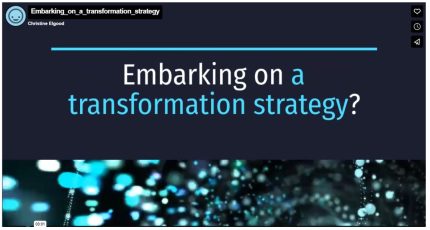Building Management Capability
Do you want a highly capable management team that sets your organisation apart?

A dynamic, capable management team within your organisation will equip it for long-term success.
Strong leaders bring strategic vision and set clear goals. They foster a positive work culture, boosting employee engagement and productivity, improving customer satisfaction while controlling costs.
Ultimately, high levels of management capability create a stable foundation for sustainable growth and innovation in the rapidly changing environment. Using business simulations and management games to develop your team’s management capability will help you to achieve your desired outcomes.
Read Building Management Capability video transcript
There is plenty of evidence to support the argument that investing in training your management teams will increase engagement, productivity and help improve staff retention.
The investment is valuable at all stages of an individual’s career, but we believe there are specific occasions where timely intervention can make a real impact on both individual, team and organisational performance.
- Firstly, when a manager is promoted (particularly where the promotion is to their first management role) and they take the leap from being an individual contributor to making their contribution count by working through others.
- Then later in their career when moving from being responsible for a single functional area and needing to gain a broader view of how the organisation works and their part in the whole.
Business games and simulations blend tried and tested theory with the opportunity for participants to try things out for themselves. This opportunity to engage with the theories and see the cause/effect relationship in a safe environment fosters real learning that can be applied once back on the day job. It also encourages teams to communicate and work together.
Research by the National Training Laboratories shows that experiential learning, learning by doing, has an average retention rate of 75%. It is much more effective than traditional methods such as a lecture or presentation (5% retention rate), or even audio-visual experiences, with a 20% retention rate.
Whether you have a group of new managers to train or a management programme for developing your future leaders, we offer a full range of business games which can be used to develop your team’s knowledge, skill and ability.
Gain the key skills
The key skills essential for ensuring your leadership team has the management capability to make all aspects of your business or organisation succeed include leadership, financial literacy, strategic planning, and sound decision-making.
But as the former CEO of the Direct Line Group, Paul Geddes, once said: “You’d never expect a doctor to just make it up as they go along, and similarly there is best practice in management, which is a teachable, learning thing.”
While some people possess innate leadership qualities, most, along with the other essential management skills, develop them through learning. The use of management games and simulations is a highly effective way of delivering those lessons.
How can Elgood Effective Learning help?
Management games are consistently perceived by the participants as more interesting than traditional instruction methods and this perception leads to increased engagement and better retention of the information.
They provide the perfect opportunity for new managers, existing managers and those in supervisory roles to develop their management skills and their self-awareness. All this can be achieved in a safe environment where the dangers of real-world consequence are removed. By providing an opportunity for participants to try out ideas, before they are faced with the reality, you are building resilience for the individual and the organisation.
We have designed a range of games and simulations to ensure your managers have the essential skills they need. These can be purchased and used in-house with a member of the training team or a more experienced manager taking the facilitation role. If you do not have an experienced facilitator, Elgood can do this for you.
If you are unable to find a product that suits your requirements you might like to consider having a management game designed to meet your specific need.
How do you make sure your managers have the skills needed to excel? Assuming new hires already possess them, or that your current team will pick things up along the way, can lead to costly mistakes. By investing in your team’s development, you boost efficiency, control recruitment costs and minimise business disruption. Don’t leave your success to chance.
For more on the benefits of management games take a look at our White Paper Experiential Learning: Why Learning by doing Builds Agile Supportive Organisations.
Building Management Capability Frequently Asked Questions
What is a management game?
I will break this into two parts. The word game is used to describe activities in which some, or all, of these characteristics are prominent:
- Human, or humanly controlled, opponents, whose actions have an effect, upon each other and upon the environment.
- An emphasis on competitiveness and ‘winning’.
- An emphasis on pleasure, humour and enjoyment.
- A repetitive cycle of making decisions and encountering a result, allowing the hope of improvement and of ‘doing better next time’.
The addition of the word management indicates a focus on planning, management and control of any organisation or project in circumstances where profit is not the dominant measure of success.
What is a business management game?
A business management game is one that focusses on the planning, management or control of an organisation with an industrial, commercial or financial background.
Please also see our answer to ‘what is a management game’.
What is Experiential Learning?
This refers to learning that an individual derives from experience. The term comes from the book Experiential Learning: experience as the source of learning and development published by David A Kolb (Englewood Cliffs, Prentice Hall, 1984).
In the book Kolb explained how a person learns through a cycle of discovery and experience. The Kolb learning cycle has four stages.

In situations where it is difficult for people to gain live experience the use of games and simulations can be used to mimic reality. The activity provides the active experimentation and concrete experience and the individual can then learn through reflective observation and abstract conceptualisation with the potential of going around the circle again to test out their new-found knowledge.
Retention rates from activities that incorporate experiential methods result in significantly higher retention rates – 75% from practice by doing in comparison to 5% from a lecture.
Research by National Training Laborotries.
How can simulation games enhance my training event?
We gather feedback from every management game and business simulation we design and run. Here’s what our clients say:
- Active learning keeps our people involved in the whole process.
- Simulations draw out everyone’s strengths across the group.
- Learning by experience is fun and interactive, engaging all the senses.
- Role-playing fosters negotiation and problem-solving skills.
- Business-specific simulations add real relevance to our events.
- Our participants retain new information better.
“the increased retention over time of learning appears to be one of the most consistent findings within the research into the potential of games for learning”
Simon Egenfeldt-Nielsen of the University of Copenhagen
Can a Business Simulation Game help me assess the skills and capabilities of individuals?
Business simulation games can be used as part of both formal and informal assessment activities. If you have a clear understanding of the competencies required and how these would be demonstrated, you can create a checklist to allow observers to assess individuals while they are participating in an activity. A similar checklist can be used by the participants themselves to reflect on their behavior after the event.
Business simulation games can be used as part of a recruitment, induction, development or assessment process.
Read our Warwick case study
Read our assessment or development centre page
If you would like to know more about building management capability - call us today on 0118 982 1115
Our top products for building management capability
We offer a range of products some focussing on one management capability while others take a more holistic view and seek to assess and develop a range of capabilities. If you have identified a specific capability and don’t see something in our published catalogue, please get in touch. We have a vast catalogue developed through our consultancy work.
Elgood Effective Learning - for improved performance - call us today on 0118 982 1115
Insights
I am really interested in the impact artificial intelligence will have on the future of work. I am interested on a personal level but also at a wider level. It raises questions such as: What do I need to do to ensure my skills remain relevant in the future? What…
You can’t move for statistics on the numbers of companies that are discussing a business transformation as a result of the pandemic or have Transformation Progress accelerated their plans because of it. For many leaders, transforming their business is about adopting a digital first approach. This is costly, resource intensive…
Faced with re-purposing your existing resources to meet the challenges of tomorrow? Need an equitable process to ensure you are placing the right people in the right jobs? https://vimeo.com/1047412418 Read our case study to learn more about our approach or get in touch.
…The Skills You Need to Conquer the Management and Leadership Challenges Ahead There are a number of significant changes facing UK businesses that will have a huge effect on how they are organised and operate. Management and leadership challenges range from digital transformation through regulatory change to the ambiguity of…









